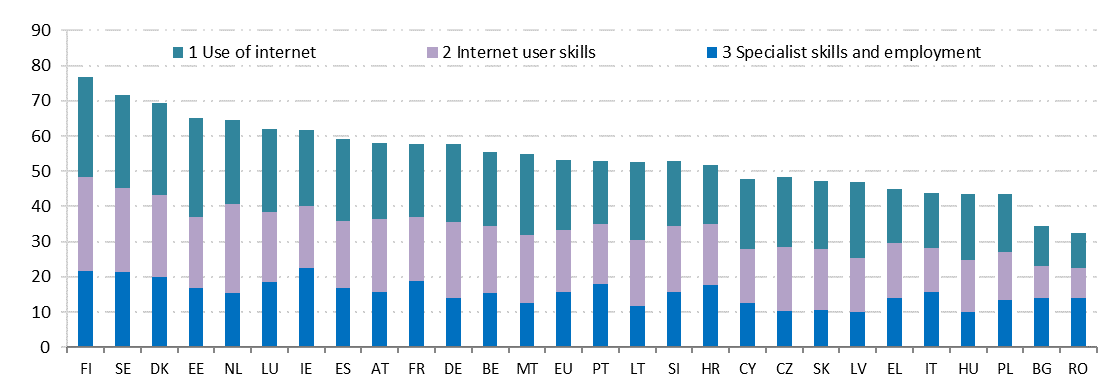
© iStock by Getty Images — 1218017051 by Deagreez
Part of the Digital Economy and Society Index (DESI), the Women in Digital Scoreboard assesses Member States' performance in the areas of internet use, internet user skills, specialist skills and employment based on 12 indicators.
The Commission’s 2021 Women in Digital Scoreboard confirms that there is still a substantial gender gap in specialist digital skills. Only 19% of ICT specialists and about one third of science, technology, engineering and mathematics graduates are female. There is no progress, as these figures have been stable over the last few years. The Digital Compass has set the target that the EU should have 20 million employed ICT specialists, with convergence between women and men, by 2030.
The gap is significantly smaller for the use of internet and internet user skills. 85% of females used the internet regularly in 2020 compared with 87% of males. A 4-percentage-point difference can be observed in the digital skills indicators: 54% of females have at least basic digital skills (58% of males), 29% above basic digital skills (33% of males) and 56% at least basic software skills (60% of males) as of 2019.
Women are the most digital in Finland, Sweden, Denmark, Estonia and the Netherlands. All these countries perform very well in DESI, too. Women in Romania, Bulgaria, Poland, Hungary and Italy score lowest on female participation in the digital economy and society.
2021 Women in Digital Scoreboard — ranking of Member States

View Women in Digital country profiles (.pdf)
Read the methodology for the Women in Digital Scoreboard (.pdf)
